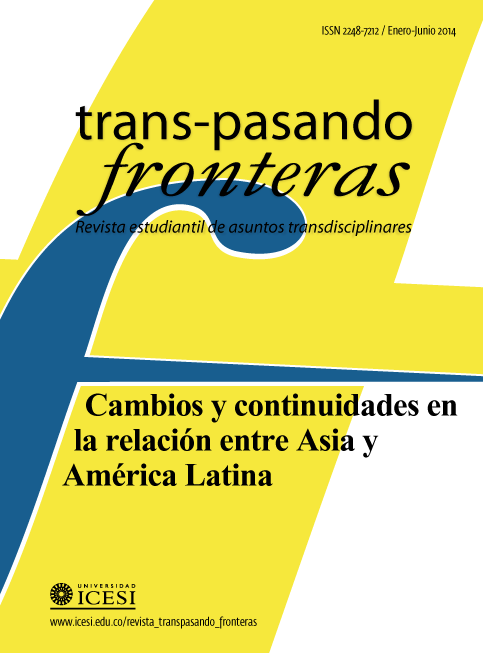Human Trafficking and the Sex Industry in Japan
DOI:
https://doi.org/10.18046/retf.i5.1753Palavras-chave:
Human trafficking, Sex industry, JapanResumo
This paper will examine the demand for the sex industry in Japan and the subsequent supply of foreign women from across the world. What drives demand for foreign women to work in the Japanese sex industry? What are the local drivers that bring women into the sex industry? How are the systems in place that brought these women across the world? What is the connection with organized crime, economic instability, and legal systems? This paper seeks to address these questions and pose possible solutions.
Downloads
Referências
HEPBURN, Stephanie and Simon R (2013). Human Trafficking around the World: Hidden in Plain Sight. Columbia University Press.
HUMAN TRAFFICKING (2014). Retrieved from http://www.humantrafficking.org/countries/japan/
KAPLAN, David and Dubro Alec (2012). Yakuza: Japan´s criminal underworld. University of California Press.
MOLINA, Fanny (2000). Japan, The Mecca for Trafficking in Colombian Women. Young, 3.
UNITED STATES DEPARTMENT OF STATES (2013). Trafficking in Persons Report. Retrived from: http://www.state.gov/j/tip/rls/tiprpt/2013/
UNITED STATES DEPARTMENT OF STATES (2011). Trafficking in Persons Report. Retrived from: http://www.state.gov/j/tip/rls/tiprpt/2011/
Downloads
Publicado
Edição
Seção
Licença
Trans-pasando Fronteras provee acceso libre inmediato a su contenido bajo el principio de que hacer disponible gratuitamente la investigación al publico, lo cual fomenta un mayor intercambio de conocimiento global.
© Los autores tienen derechos de autor y los de publicación sin restricciones, pero de acuerdo con la licencia CC.
El material de esta publicación puede ser reproducido sin autorización, siempre y cuando se cite el título, el autor y la fuente institucional.
La revista Trans-pasando Fronteras no se hace responsable de las ideas expuestas bajo su nombre, las ideas publicadas, los modelos teóricos expuestos o los nombres aludidos por el(los) autor(es) de los artículos. El contenido es responsabilidad exclusiva del(los) autor(es), y no reflejan la opinión de las directivas de la Universidad Icesi, del Centro de Estudios Interdisciplinarios Jurídicos, Sociales y Humanistas (CIES), de la Facultad de Derecho y Ciencias Sociales, o de los editores de la revista.







